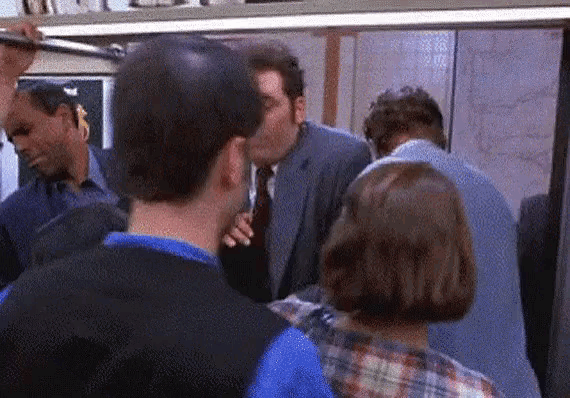When I am getting a haircut, I try to keep my head absolutely still and look straight ahead. This habit, I like to believe, minimises the risk of the hairdresser lopping off my ears.
As a child, I was never comfortable with scissors operating in such close proximity to my ears. It felt quite reckless and I had little patience for that sort of rash indulgence. In my book, unruly hair was a meagre price to pay for avoiding an existential threat to one’s organs. Unfortunately, my parents felt differently. I would be dragged to the salon, draped with an apron, and told that fidgeting could lead to the loss of an earlobe or two. The threat would freeze me in the chair, though my whimpering would continue long after the scissors had been returned to the drawer.
I am no longer prey to such childish fears, of course, but only the foolish tempt fate. And so, over three decades of salon visits, I have trained myself to achieve a state of stillness that would be the envy of Trappist monks. The only disadvantage of this practice is that when you notice an acquaintance, from the corner of your eye, you cannot turn to greet them. This is precisely what happened a few days ago when I was at my local barber shop.
I was focussing on my breathing —ignoring the swift, perilous movements of the clippers — when I realised the man sitting next to me was from my apartment building. He seemed to be kindred soul for he too sat motionless: staring at the mirror, not a flicker of emotion on his face. But minutes later, after the barber dusted him off, he did something I would never dream of doing. He combed his hair, paid, and then walked out — without a word of gratitude.

I was appalled. What manner of fiend does not say ‘Thank you’ to his hairdresser? News of his churlish act was sure to spread across our neighbourhood. Local businesses would view us with jaundiced eyes. In one fell swoop, this grouch had ruined the reputation of our housing society. I had a moral duty to make amends. When I was de-aproned, I set about my task.
I thanked the salon’s staff and commended their dexterity. I have little skill in small talk but I made an effort to compensate for the surly silence of my neighbour. I wanted to show them that decent, humane souls still exist in the world. It was when I asked them about their favourite vegetable that I could see their interest flagging. I know when I’m losing my audience so I bade them goodbye and left, secure in the knowledge that my politeness had protected our building from disrepute.

What does it mean to be ‘nice’? Is being polite enough to be considered agreeable? Or does it require something more, a deeper sense of feeling? What are the contours of niceness?
In 2017, researchers at the University of Melbourne attempted to answer these questions. They wanted to understand if ‘agreeableness’ — one of five broad dimensions capturing the majority of human personality — could be divided into separate, narrower traits. After conducting a series of tests, they concluded that there are, in fact, two distinct components to agreeableness: politeness and compassion. They explained the difference, here:
Politeness refers to our tendency to be respectful of others versus being aggressive. It’s about good manners and adhering to societal rules and norms…. In contrast, compassion refers to our tendency to be emotionally concerned about others versus being cold-hearted.
The researchers could have saved themselves a lot of trouble if they’d simply visited my family. My mother and I are both nice, agreeable people — the perfect test subjects. But while I value good manners and take pains to be polite, my mother sports a compassion that has been bitten by a radioactive spider.
No person is safe from my mother’s empathy. If you happen to cross paths with her, she is certain to aim an act of kindness in your direction. Indeed, should you allow her, she may even take charge of your life and your affairs. While age and gender do not matter when accessing her largesse, a younger male will have the added advantage of invoking her motherly instinct. I should mention I use the word ‘younger’ here, in its loosest possible sense. When I was a teenager, my mother would often tell me about a ‘bachha chele’ (young boy) she’d met, and how her heart had bled when she’d learnt of all the troubles heaped upon such a callow youth. I thought of you when I saw him, she would say, her brow clouded with sorrow. I would, naively, assume this boy to be an adolescent, someone around my age — but upon interrogation, the bachha chele would turn out to be a man in his thirties. (Generosity of spirit is laudable, no doubt, but as a teenager you do not relish being equated to a middle-aged man.)
When you witness zealous compassion from such close quarters, you are also made privy to its pitfalls: the anguish, the helplessness, and sometimes, the misunderstandings. Perhaps that is what made me wary, or perhaps I possess a colder heart; whatever the reason, I did not emulate my mother’s intense brand of niceness. My niceness is much milder and puts much less at stake — and yet, there are still times when I have cause to regret it.
Centuries ago, when the word ‘nice’ swam across the Channel and wriggled its way into the English vocabulary, it had a rocky start. It was used to refer to the “foolish, ignorant, frivolous, senseless” — not to mention the “silly, simple” — due to its unsavoury Latin roots. Over the years, ‘nice’ has been able to engineer an image makeover. On some occasions, however, being nice does tantamount to being stupid.
Take driving, for instance. Driving on Indian roads, to be precise. To be courteous at an intersection, and to cede the right of way to anyone, is to be foolish, ignorant, silly, and senseless.
When you stop at a junction, with the noble intent of letting an old man cross the street, you are marked out as a sucker. The car in the opposite lane swoops in to fill the empty patch of tarmac and block your progress. The car behind you honks its outrage and tries to overtake you. The car in the adjoining lane is unperturbed by this melee and continues to drive towards you, as if blessed with the ability to sail through solid matter. And the old man, disgusted at the chaos you have caused, throws you a withering look before shuffling away. All because you abide by traffic etiquette.
Lift lobbies are no different. If you believe it’s polite to let someone board the elevator before you, then you must be in the habit of taking the stairs. Because once you step aside and let one person through, a sea of humanity rushes towards the breach you’ve created. People at the turnstiles let out a war cry and charge in to take advantage of your folly. Buffeted by the waves you are pushed to the side and as the lift doors close, you find yourself at the foot of the staircase. At least the feckless get some exercise.

And let’s not forget that politeness can also prevent you from speaking your mind. You’re eating your lunch at the office cafeteria, say, and a colleague walks up to you.
‘What’s that book you’re reading?’ he asks.
You show him the cover.
‘Ah, right. You know I cannot read fairy tales… the Harry Potter kind of story, I mean. I just don’t understand them.’
You take a few seconds to swallow before replying that the book you’re holding is not a fairy tale.
‘Fiction type books also I cannot read. All of them are so boring.’
At this point what you want to tell him is yes, you completely understand, it would be difficult for him to appreciate fiction because that does require one to possess a brain — but you cannot. The gag of politeness seals your lips. You offer instead to recommend some non-fiction books you know he’ll never read.
This, to be honest, is not the only way civility can hamper you in the workplace. Corporate culture needs hierarchy, a chain of command. If your commander is more intent on protecting your feelings rather than improving efficiency, the system cannot function. I should know. I was once tasked to give some critical feedback to a junior associate whose work had left much to be desired. When I had finished delivering what I thought was a scathing indictment, she had thanked me — a wide smile on her face — for praising her industry. (Later, running the conversation over in my head, I realised that in my bid to be considerate, I’d relied a bit too heavily on euphemisms.)

I never could cultivate the curt and dour demeanour that is de rigueur for middle management. And that’s just as well, I suppose. It can be tiresome to be polite, to watch one’s words and mind one’s manners, but I like to believe it is the right way to live.
With so much going wrong with the world, a kind word or a friendly wave costs little but can weigh much. Notwithstanding the pain it causes, it is worth stopping traffic to let someone cross the road, or to hold the lift door open to let another board. And, it is certainly worth saying please and thank you to people — especially when they are holding a pair of scissors so close to your ears.




Dear bachcha chhele, You've learnt your mother's lessons well.
Such a fun essay that makes a larger, more important point Rohan. I'm all for politeness, even if the takers often don't appreciate it and the givers are few.